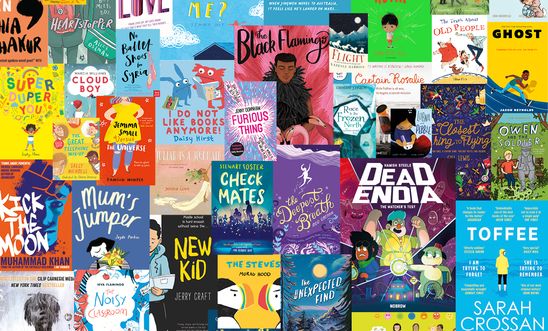
Reading for Empathy Lab: books for a better world

Written by Christofere Fila – Publishing Coordinator at Amnesty UK
Why is Empathy Lab important to Amnesty
I had the pleasure and privilege of reading and assessing books for the Empathy Lab collection 2020. Empathy is about being able to connect with someone’s experience without judgment. It’s not an easy thing to do but it can be learnt. Children’s books can be used as a soft and beautiful tool to develop children and young people’s ability to empathise with others. Here at Amnesty we take children’s literature very seriously and believe that fiction empowers children to care for one another. Empathetic people – both children and adults - make a much better world. A world where everyone can express themselves without fear of getting bullied or looked down at, a world where we care about our environment and what happens to it, and a world where children everywhere feel safe to grow, learn and be happy.
My personal judging journey
Reading for Empathy Lab is a difficult responsibility. I had to read around 60 books in the span of just under 6 months. Searching for the best books to build empathy is not just reading those books I was going to enjoy and disregarding the rest. For me, it meant that I had to read some books repeating to myself: well - this is not for me but would this book help someone else in the right way if they were in the same situation as the main character? I tried to keep this sentence in mind at all times, for I didn’t believe that the collection should only contain books that I love, but also books that could change someone else’s life. As a judge, I had to use my own empathy. It meant that although there were some books I did not particularly enjoy, I wanted to champion them anyway because they were very well written and could be a life saver for another person.
Judging process
After reading for about 6 months, I and the others on the expert reading panel finally met in CLPE’s iconic and beautiful library to discuss the books. It was such an exciting experience to talk about the books with the other panellists, and meant that I got to see them in new perspectives. It was quickly obvious that we all came to the meeting ready for battle. Ready to fight for the books we truly believed in. But listening to my co-judges talking about their favourite books made me appreciate empathy even more. At the end of the day, yes, some books are better quality than others but what they instigate in each reader is very personal. You don’t have to share someone else’s feelings or agree with others about the books, all we had to do was listen to each other and be empathetic. If some books really meant a lot to someone, then it was enough for me to add it to the collection. Because that is what this is about.
My all-time favourite titles
My own, personal all-time favourites in the collection are DeadEndia by Hamish Steele, Toffee by Sara Crossan, The Deepest Breath by Meg Grehan and The Boy who Steal Houses by C. G. Drews. These four books could not be more different from one another. But ultimately what unites them is not only the brilliant quality of the writing but also the ability to transport me to a world very different to my own. I felt very moved by these stories as they drew me into a stranger’s intimate space. And all I wanted to say to these strangers was: I get it, and I am with you.
Our blogs are written by Amnesty International staff, volunteers and other interested individuals, to encourage debate around human rights issues. They do not necessarily represent the views of Amnesty International.
0 comments